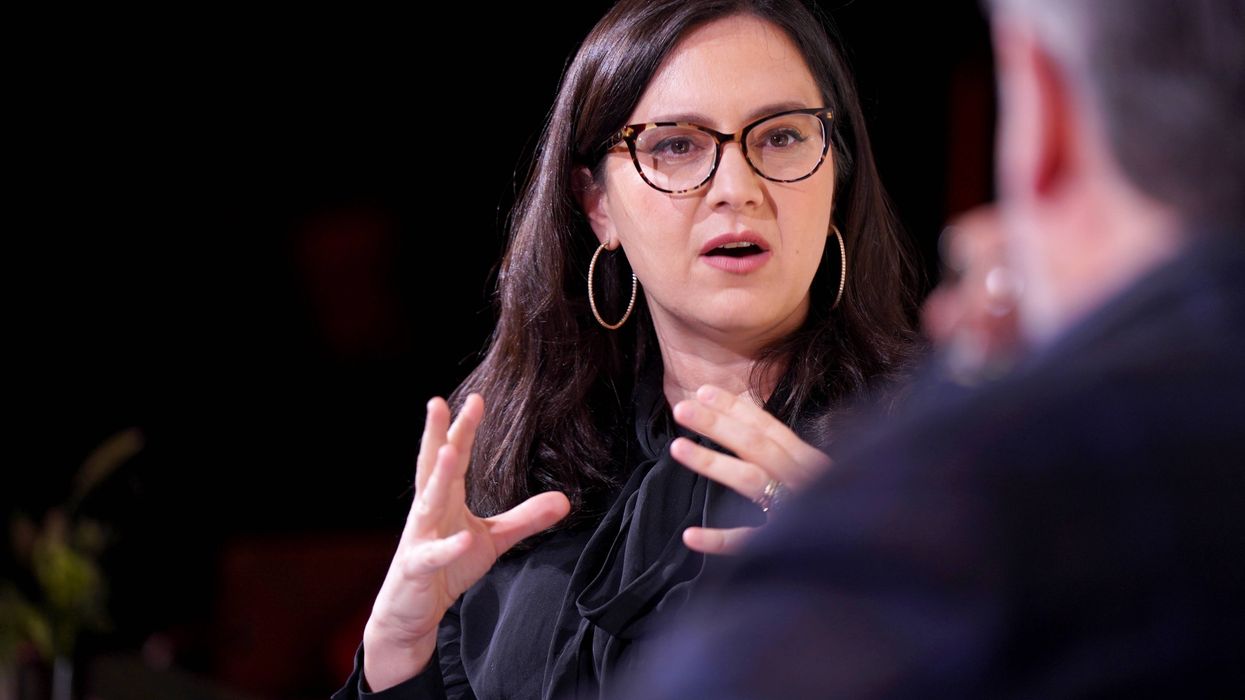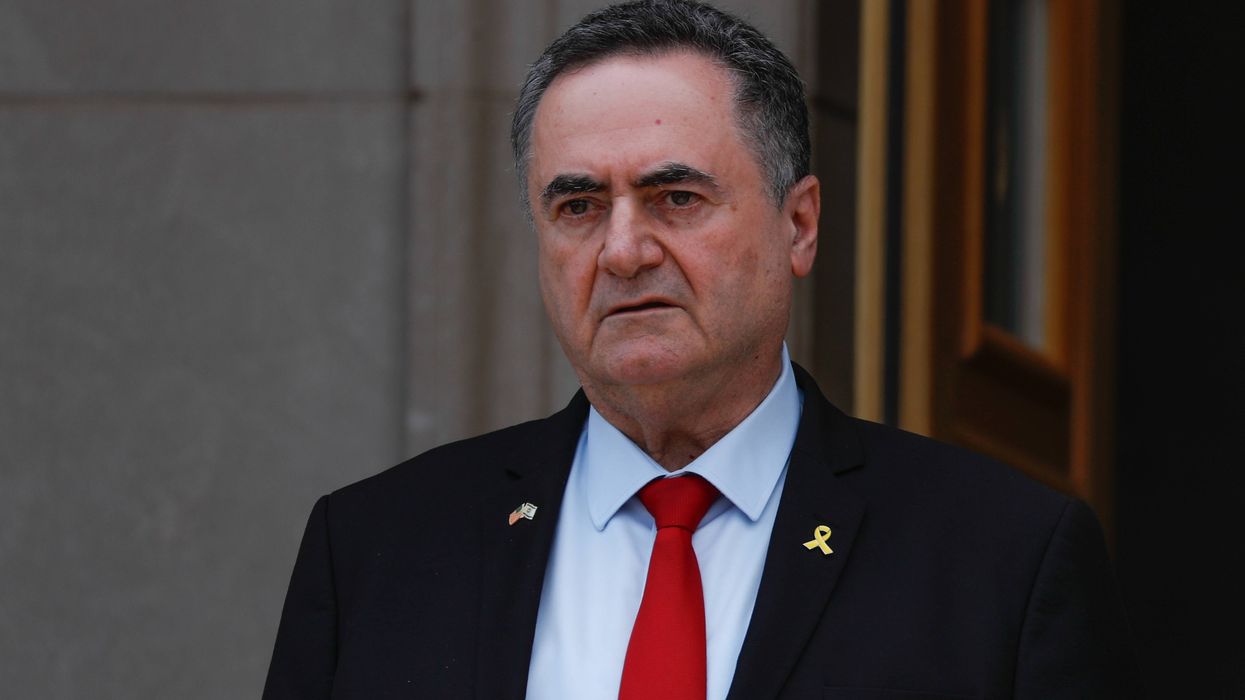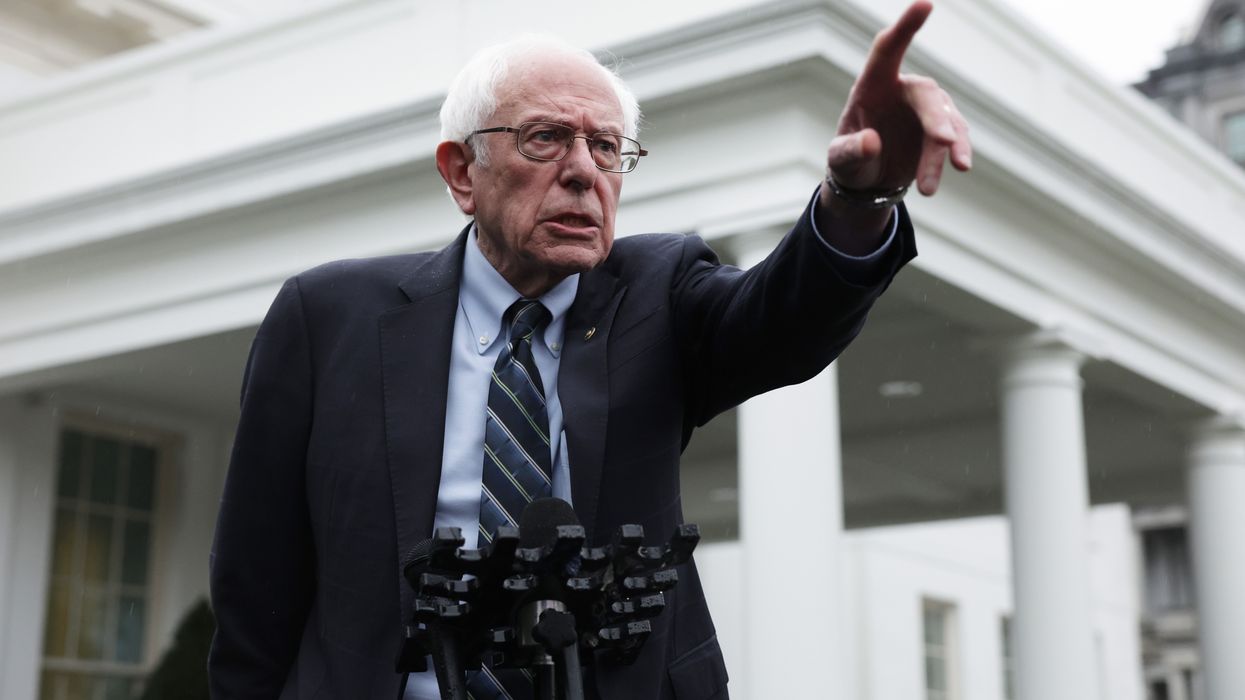June, 29 2012, 09:10am EDT

For Immediate Release
Contact:
Tel: +44 (0) 20 7413 5566,After hours: +44 7778 472 126,Email:,press@amnesty.org
Egypt: New President Must Restore Rule of Law, Govern for All
Amnesty International today called on Egypt's new president to rise to the challenge of breaking the cycle of abuse perpetuated under Hosni Mubarak and the Supreme Council of the Armed Forces (SCAF). The organization urged him to take decisive action in his first 100 days to put Egypt firmly on the path of the rule of law and respect for human rights.
Amnesty International will be closely monitoring whether he is serious about delivering human rights change, and will take stock of his human rights achievements during this critical time for reform.
WASHINGTON
Amnesty International today called on Egypt's new president to rise to the challenge of breaking the cycle of abuse perpetuated under Hosni Mubarak and the Supreme Council of the Armed Forces (SCAF). The organization urged him to take decisive action in his first 100 days to put Egypt firmly on the path of the rule of law and respect for human rights.
Amnesty International will be closely monitoring whether he is serious about delivering human rights change, and will take stock of his human rights achievements during this critical time for reform.
Ahead of President Mohamed Morsi's swearing-in ceremony, the organization has presented him with a memorandum detailing what it considers the key human rights priorities for Egypt.
"Since the uprising in January last year, Egyptians have heard many promises that their demands would be listened to and that things would change, but so far their hopes have largely been frustrated," said Salil Shetty, Amnesty International's Secretary General. "We hope, as they do, that this stage of the transition might herald a turning of the corner."
"It will be important to scrutinise the early months of the new President, and hold him to account for the actions he takes, or does not take, to get to grips with the pressing human rights priorities in Egypt."
"Egypt deserves a leadership which is prepared to confront the abuses of the past, restore the rule of law in the present and set out a vision of human rights for all for the future."
Key priorities include ending the military's power to police civilians, reforming the security forces, launching independent investigations into violations of the past - both under Mubarak and the SCAF - and putting in place measures to stop discrimination against women and religious minorities, Amnesty International said.
But the organization warned that the road to human rights will be made difficult by the army's attempts to hold on to its powers and to remove itself from civilian oversight.
The commitment of the Freedom and Justice Party (FJP), which Mohamed Morsi chaired until recently, to human rights remains unknown. The FJP were the only major party not to sign Amnesty International's Human Rights Manifesto for Change ahead of parliamentary elections last year, giving no indication of which elements they could support. Mohamed Morsi has, however, now formally resigned from his position from both the FJP and its parent organization, the Muslim Brotherhood.
"The President must now dispel any uncertainty about his commitment to uphold human rights in all circumstances, and for all Egyptians," said Salil Shetty.
END ARMY POWERS
As a first step, Amnesty International is urging the new President to release all prisoners of conscience. The organization is further calling for the President to ensure that thousands of civilians imprisoned by military courts are either released, or else are charged with recognizable criminal offences and given fair trials before civilian courts.
Amnesty International is calling on the President to end immediately the power of the military to arrest, detain and try civilians.
"The army's powers to arrest, detain and investigate civilians, and its refusal to put its forces under civilian oversight, are the most urgent threat to the rule of law," said Salil Shetty. "If President Morsi is serious about human rights, he should not call on the army to police the streets, but instead move to strip it of its authority to arrest and detain civilians once and for all."
REFORM SECURITY FORCES
Amnesty International is calling on President Morsi to take two immediate steps to reform the security forces. Firstly, the creation of an independent body with the power to investigate allegations of abuses by the security forces and to oversee their vetting. Secondly, the organization is urging Egypt's President to make public the structure of the security forces, as well as the orders which govern their use of force.
INVESTIGATE ABUSES
Amnesty International is calling for independent and impartial investigations into the human rights violations that marked the 31-year rule of Hosni Mubarak, and into the sixteen-month rule of the Supreme Council of the Armed Forces (the SCAF).
Hosni Mubarak was this month sentenced to life in prison for his involvement in the killing of protesters in the "25 January Revolution." But victims of prolonged arbitrary detention, torture and other ill-treatment during his rule have yet to see any semblance of truth, justice or reparation.
The SCAF did nothing to challenge the legacy of Hosni Mubarak. Instead, their rule has been marked by a sustained and often brutal crackdown on human rights. To date, army investigations have not succeeded in holding a single member of the armed forces to account for abuses.
"For Egypt to now look to the future, there must be truth, justice and reparation for the past," said Salil Shetty, "There has to be a guarantee that the brutal and systemic human rights violations of Hosni Mubarak and the SCAF will never be repeated."
UPHOLD FREEDOMS OF EXPRESSION, ASSOCIATION AND ASSEMBLY
Amnesty International said that urgent measures are needed to end systematic restrictions on the rights to freedom of expression, association and assembly, imposed in crackdowns under both Hosni Mubarak and the SCAF.
Journalists, bloggers and others who spoke out against repression have faced arbitrary arrest and prison terms. Egyptian human rights organizations have also faced reprisals, including a government-ordered criminal investigation into their registration and funding. Protesters calling for an end to repression have been brutally dispersed in a series of lethal crackdowns.
"As recognition of the vital role played by human rights organizations, all impediments to their activities in law and practice should be immediately lifted," said Salil Shetty.
END DISCRIMINATION AGAINST WOMEN AND MINORITIES
"President Morsi has said he will be a President for all Egyptians and has said he will appoint a woman and a Copt as his two Vice Presidents," said Sali Shetty. "We look to the leadership to undo the damage wrought by repressive laws, and to combat discriminatory practices."
Egyptian law continues to discriminate against women in terms of personal status, and does not punish crimes like marital rape. Sexual harassment remains widespread and often goes unpunished. Only a handful of women were elected to the now-dissolved Parliament.
Amnesty International is also calling on President Morsi to end discrimination against minorities in Egypt, including Coptic Christians. Copts continue to be under-represented in relation to appointments to high public offices, positions of university presidents, as well as key security positions, including at the level of the National Security Agency or the General Intelligence.
HOUSING
Many of Egypt's 12.2 million slum-dwellers live in fear that the authorities will forcibly evict them from their homes, a common practice. Many slum-dwellers are left homeless, or are resettled far from their homes, their families and their livelihoods.
Amnesty International called on the new President to end the policy of forced evictions.
Amnesty International is a worldwide movement of people who campaign for internationally recognized human rights for all. Our supporters are outraged by human rights abuses but inspired by hope for a better world - so we work to improve human rights through campaigning and international solidarity. We have more than 2.2 million members and subscribers in more than 150 countries and regions and we coordinate this support to act for justice on a wide range of issues.
LATEST NEWS
YouTube, TikTok Deleted ‘60 Minutes’ CECOT Clips Amid Paramount Takedown Push
The segment on the notorious torture prison—where the Trump administration has been unlawfully deporting Venezuelans—went viral on social media after being inadvertently aired in Canada.
Dec 23, 2025
Websites including YouTube and TikTok this week removed posts of a CBS News "60 Minutes" segment on a notorious prison in El Salvador, where Trump the administration has been illegally deporting Venezuelan immigrants, after being notified that publishing the clip violated parent company's copyright.
The segment on the Terrorism Confinement Center (CECOT)—which was intended to air on Sunday's episode of "60 Minutes"—was pulled by right-wing CBS News editor-in-chief Bari Weiss, who claimed that the story "was not ready" for broadcast, despite thorough editing and clearance by key company officials.
“Our story was screened five times and cleared by both CBS attorneys and Standards and Practices," said "60 Minutes" correspondent Sharyn Alfonsi, who reported the segment. “It is factually correct. In my view, pulling it now, after every rigorous internal check has been met, is not an editorial decision, it is a political one.”
The segment—which can still be viewed on sites including X—was shared by social media users after a Canadian network received and broadcast an original version of the "60 Minutes" episode containing the CECOT piece prior to CBS pulling the story. The social media posts containing the segment were reportedly removed after CBS parent company Paramount Skydance filed copyright claims.
A CBS News representative said that “Paramount’s content protection team is in the process of routine take down orders for the unaired and unauthorized segment.”
Weiss—who also founded and still edits the Paramount Skydance-owned Free Press—has faced criticism for other moves, including presiding over the removal of parts of a previous "60 Minutes" interview with President Donald Trump regarding potential corruption stemming from his family’s massive cryptocurrency profits.
On Tuesday, Axios reported that Weiss is planning a broad overhaul of standards and procedures at the network, where she was hired by Paramount Skydance CEO and Trump supporter David Ellison in October, despite a lack of broadcasting experience.
Keep ReadingShow Less
Israeli Defense Minister Tries to Walk Back Vow to 'Never Leave Gaza,' Build Settlements
The remarks drew critical responses, including from other Israelis and the White House.
Dec 23, 2025
Israeli Defense Minister Israel Katz "said the silent part out loud" on Tuesday, then promptly tried to walk back his comments that his country would not only never leave the Gaza Strip, but also reestablish settlements in the decimated exclave.
Israel evacuated Jewish settlements in Gaza two decades ago, but some officials have pushed for ethnically cleansing the strip of Palestinians and recolonizing it, particularly since the Hamas-led October 7, 2023 attack and the devastating Israeli assault that followed.
The Times of Israel on Tuesday translated Katz's remarks—made during an event about expanding Beit El, a Jewish settlement in the illegally occupied West Bank—from Hebrew to English:
"With God's help, when the time comes, also in northern Gaza, we will establish Nahal pioneer groups in place of the settlements that were evacuated," he said. "We'll do it in the right way, at the appropriate time."
Katz was referring to the Nahal military unit that, in part, lets youths combine pioneering activities with military service. In the past, many of the outposts established by the unit went on to evolve into full-fledged settlements.
"We are deep inside Gaza, and we will never leave Gaza—there will be no such thing," Katz said. "We are here to defend and to prevent what happened from happening again."
The so-called peace plan for Gaza that US President Donald Trump and Israeli Prime Minister Benjamin Netanyahu announced at the White House in late September notably states that "Israel will not occupy or annex Gaza," and "the Israel Defense Forces (IDF) will withdraw based on standards, milestones, and timeframes linked to demilitarization."
Gadi Eisenkot, a former IDF chief of staff who launched a new political party a few months ago, responded to Katz on social media, writing in Hebrew, "While the government votes with one hand in favor of the Trump plan, it sells myths with the other hand about isolated settlement nuclei in the strip."
"Instead of strengthening security and bringing about an enlistment law that will bolster the IDF, the government, driven by narrow political considerations, continues to scatter irresponsible and empty declarations that only harm Israel's standing in the world," he added.
The White House was also critical of Katz's comments, with an unnamed official saying that "the more Israel provokes, the less the Arab countries want to work with them."
"The United States remains fully committed to President Trump's 20-point peace plan, which was agreed to by all parties and endorsed by the international community," the official continued. "The plan envisions a phased approach to security, governance, and reconstruction in Gaza. We expect all parties to adhere to the commitments they made under the 20-point plan."
Later Tuesday, Katz's office said that "the minister of defense's remarks regarding the integration of Nahal units in the northern Gaza Strip were made solely in a security context. The government has no intention of establishing settlements in the Gaza Strip. The minister of defense emphasized the central principle of border defense in every arena: The IDF is the first and last line of defense for Israel's citizens, and the state of Israel relies for its protection solely on it and on the security forces."
Katz became defense minister in November 2024, just weeks before the International Criminal Court issued arrest warrants for his fired predecessor, Yoav Gallat, and Netanyahu over Israel's assault on and blockade of Gaza. When Katz took on the new role after serving as foreign minister, Palestine defenders accused the prime minister of swapping one "genocidal lunatic" for another.
Israel faces an ongoing genocide case at the International Court of Justice for its mass slaughter of Palestinians in Gaza. As of Tuesday, local officials put the death toll since October 2023 at 70,942, with another 171,195 Palestinians wounded, though global experts warn the true tallies are likely far higher.
At least 406 of those confirmed deaths have occurred since Israel and Hamas agreed to a ceasefire that took effect October 10. In a Monday letter demanding action from the White House, dozens of Democratic US lawmakers noted Israel's "continued bombardment against civilians, destruction of property, and insufficient delivery of humanitarian aid."
Keep ReadingShow Less
Sanders Slams Private Equity Scrooges Ending Paid Holidays for Walgreens Workers
"While the rich get richer, workers are struggling, and your decision to cut workers' paid vacation is making the problem worse."
Dec 23, 2025
Independent US Sen. Bernie Sanders on Tuesday urged the private equity firm that recently acquired Walgreens to reverse its decision to strip hourly workers at the second-largest US pharmacy chain of paid days off on Christmas and other major holidays.
After Sycamore Partners finalized its $10 billion purchase of Walgreens in late August, the pharmacy chain—now headed by CEO Mike Motz—eliminated paid holidays for New Year's Day, Memorial Day, Independence Day, Labor Day, Thanksgiving, and Christmas. Workers were notified of the move, which was first reported by Bloomberg, in October.
The move is typical of what private equity firms—sometimes called vulture capitalists—often do in order to maximize profits. In addition to slashing paid time off and benefits, they often reduce or freeze pay, fire workers, close locations, introduce aggressive sales targets, and reduce job security by replacing full-time positions with hourly or independently contracted workers. Walgreens announced last year that it planned on closing around 1,200 of its roughly 8,000 US stores, citing their struggling performance.
"This Thanksgiving, Walgreens' hourly workers faced the impossible choice between losing pay and spending the holiday with their loved ones," Sanders (Vt.)—who is the ranking member of the Senate Health, Education, Labor, and Pensions (HELP) Committee—wrote Tuesday in a letter to Sycamore Partners founder and managing director Stefan Kaluzny.
"Walgreens employs 220,000 employees, the vast majority of whom are hourly workers... Sycamore Partners' decision to cut paid holidays for these hourly workers is unfortunately not surprising," the senator continued. "The firm follows the private equity playbook of buying businesses and aggressively extracting profit while using and abusing workers."
"For example, just one year after Sycamore Partners purchased Staples, the firm extracted $1 billion from the company as it closed 100 stores and laid off 7,000 workers," Sanders noted. "That same year, Sycamore Partners drove Nine West into bankruptcy and was accused of siphoning off over $1 billion in funds."
"Meanwhile, from 2016-22, companies owned by Sycamore Partners racked up over $3 million in labor violations, including wage-and-hour and workplace safety and health violations," he added.
During the holiday season, we all want to spend time with our loved ones. And yet, just two months after buying Walgreens for $10 billion, the private equity firm Sycamore Partners stripped hourly workers of paid vacation, including Christmas and New Year’s Day. Shameful.
[image or embed]
— Senator Bernie Sanders (@sanders.senate.gov) December 23, 2025 at 9:41 AM
Sanders contrasted a reality in which "60% of Americans are living paycheck to paycheck" with the fact that "more private equity managers make over $100 million annually than investment bankers, top financial executives, and professional athletes combined."
"While the rich get richer, workers are struggling, and your decision to cut workers' paid vacation leave is making the problem worse," he stressed. "Some Walgreens workers make as little as $15 an hour. Cutting their paid leave will make it even more difficult for these workers to pay for housing, childcare, healthcare, and groceries."
"In short," Sanders concluded, "Sycamore Partners is forcing workers to sacrifice their basic needs for private equity profit."
Keep ReadingShow Less
Most Popular


